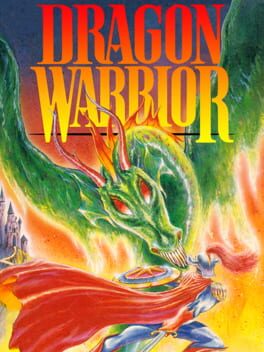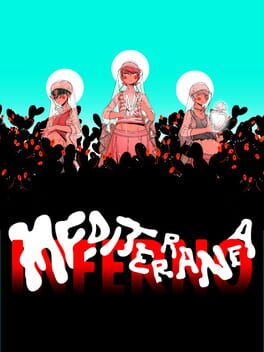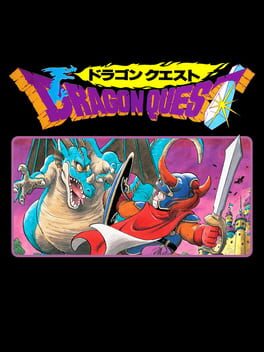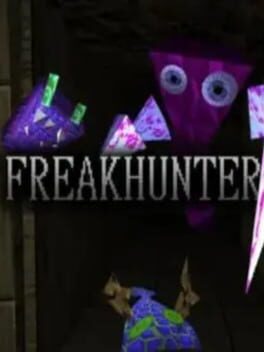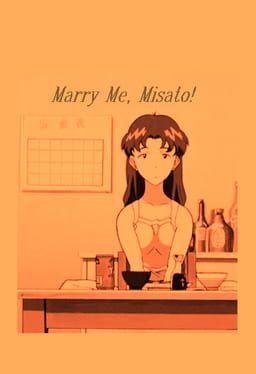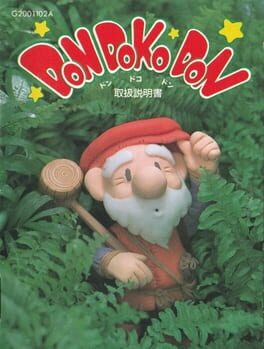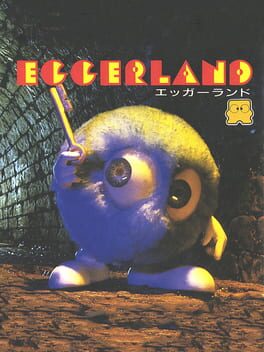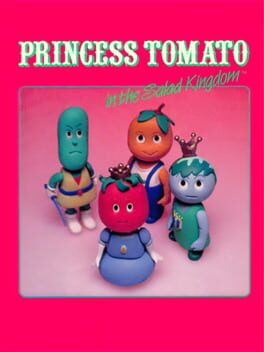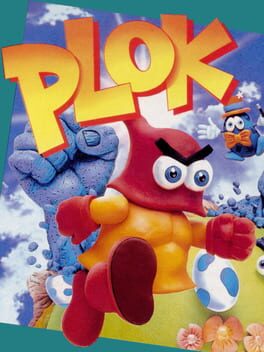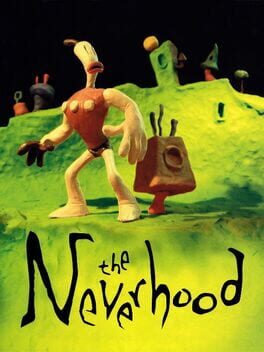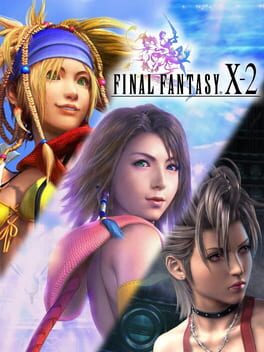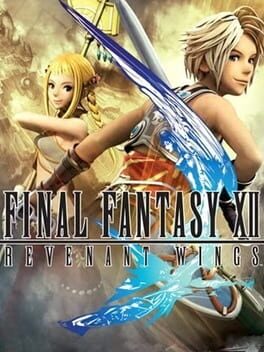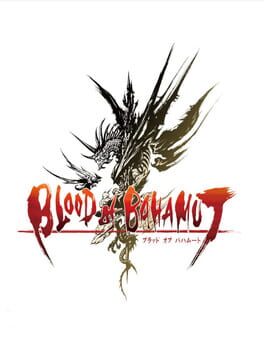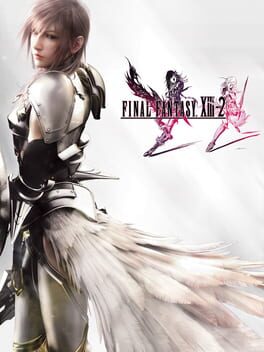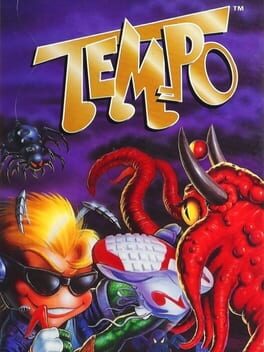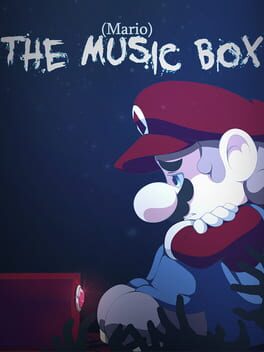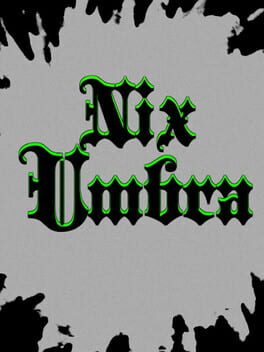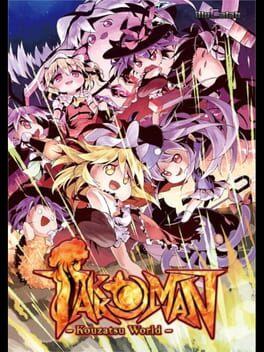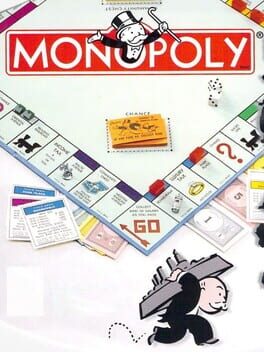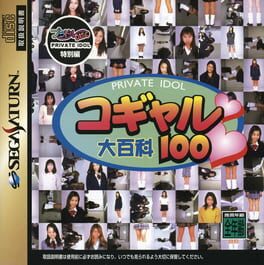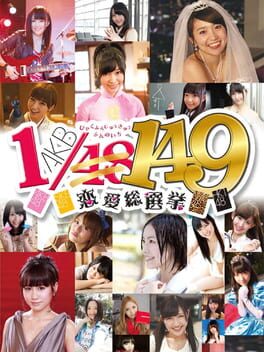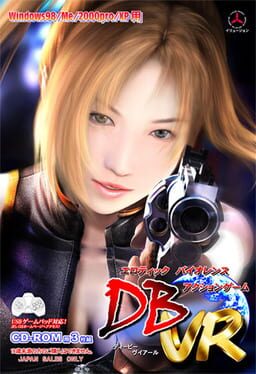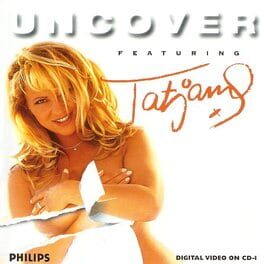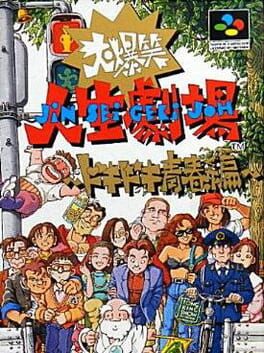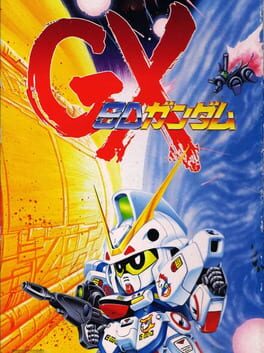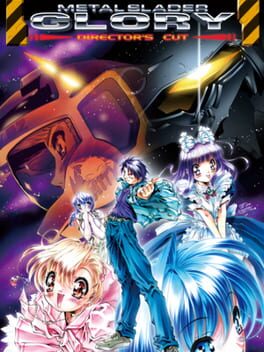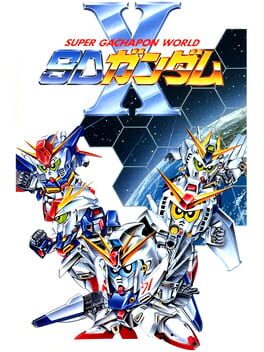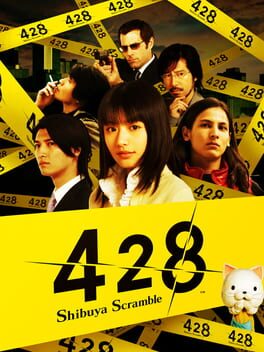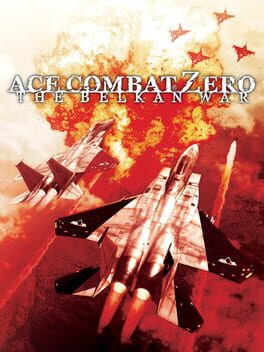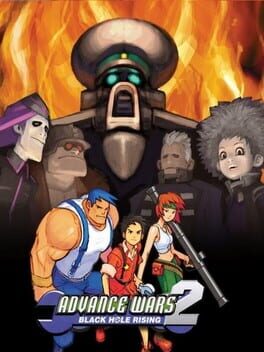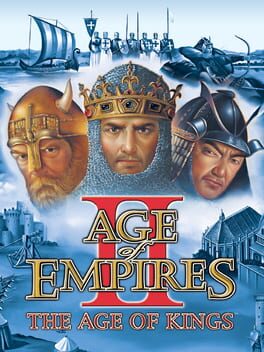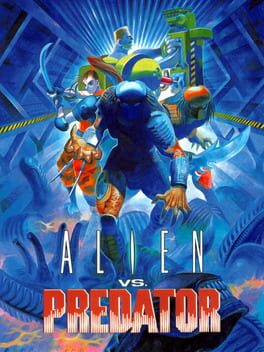el_hermano
25 reviews liked by el_hermano
Final Fantasy X
2001
It's hard for me to think about what to write about FFX--so much has been said about it over the years! And if I'm honest, so many of my thoughts are so tied up in the experience of nostalgia and of playing it when it was new and I was a young teenager. So in lieu of anything massively interesting to say about its mechanics (which I love), or Blitzball (which I love) or the story (which I love) or the characters (whom I love), I'll just relay some anecdotes from my freshman year of high school in the fall of 2002.
The first in-real-life girl I ever felt anything for (I wasn't out yet, not for a long time) and that I knew I felt things for and I were in that girl's bedroom. We had met at the statewide anime convention earlier in the month and only then realized that we were going to be going to the same High School. We were both nervous and both ended up talking about how what we talked about at the convention was how cool Lulu and Yuna were and how annoying we thought Blitzball was. She turned on her PS2 and loaded her save; it was at the Shoopuf landing. I felt my heart flutter as she ran around.
The first time I ever truly had my heart broken was by the dungeon master of the first D&D campaign I ever played in; I was a sophomore and my Wizard's name was Yunalesca.
The first time I was ever stopped for photos by multiple people in an anime convention hallway and had multiple cameras snapping away like the paparazzi was me cosplaying Rikku; I cut my hair so short my mother cried. I was a Junior in high school.
I love Final Fantasy X. It made an impact on me. I think you should play it if you haven't.
The first in-real-life girl I ever felt anything for (I wasn't out yet, not for a long time) and that I knew I felt things for and I were in that girl's bedroom. We had met at the statewide anime convention earlier in the month and only then realized that we were going to be going to the same High School. We were both nervous and both ended up talking about how what we talked about at the convention was how cool Lulu and Yuna were and how annoying we thought Blitzball was. She turned on her PS2 and loaded her save; it was at the Shoopuf landing. I felt my heart flutter as she ran around.
The first time I ever truly had my heart broken was by the dungeon master of the first D&D campaign I ever played in; I was a sophomore and my Wizard's name was Yunalesca.
The first time I was ever stopped for photos by multiple people in an anime convention hallway and had multiple cameras snapping away like the paparazzi was me cosplaying Rikku; I cut my hair so short my mother cried. I was a Junior in high school.
I love Final Fantasy X. It made an impact on me. I think you should play it if you haven't.
Dragon Warrior
1986
I believe that considering Dragon Quest, as MudkipTheGodly does, as the Ur-JRPG is a fundamental mistake, which distorts greatly the interpretation that one can have of the game. An approach that makes Dragon Quest a precursor of the genre neglects the earlier titles, with their already well-defined mechanics and even years ago, while giving a teleological value to the progression of JRPGs. To the modern eye, Dragon Quest and Final Fantasy may represent the essence of the genre, but this sidesteps the question of what characterises a JRPG and how it defines itself in relation to other adventure game traditions.
I have already mentioned this in my review of Hydlide (1984), but JRPGs are tributary to an old history, largely connected with the Western tradition of role-playing games. Its emergence is linked to the Wizardry and Ultima series, which largely fuelled the Japanese passion for dungeon crawlers. Many games have been inspired by this approach and Hydlide is one of these titles, serving as a transition for Japanese game design. A year before the release of Dragon Quest, Enix had already released their first RPG, Chikyuu Senshi Rayieza (1985), whose mechanics may seem archaic, but are inherited from the turn-based tradition initiated by the West. The same year, Cosmic Soldier (1985) also offered a formula very close to Wizardry, but with the possibility of recruiting opponents during the fighting by talking to them. The Screamer (1985) was inspired by the same series. As for Ultima, there are many games modelled on it, such as Seiken Densetsu (1983) – not the Square series – or Ken to Mahou (1983), illustrating a real vitality for the genre in Japan, especially on PC.
My argument is that Dragon Quest came within a context that was already punctuated by role-playing games. Its uniqueness, however, lies in the approach of Yuji Horii, who had made his mark on investigative games, notably Portopia Renzoku Satsujin Jiken (1983) and Karuizawa Yūkai Annai (1985), the latter featuring some Ultima-like sequences. A joint interview with Rika Suzuki reveals Horii's emphasis on story and guided progression in an adventure game. He stands in opposition to the very cryptic and overwhelming approach of Western RPGs, where the difficulty is very high and the levels are extremely long, often with no short term goals provided to the player. This philosophy infuses the development of Dragon Quest, which, like Hydlide, attempts to offer an adventure that is accessible to neophytes. Similarly, disliking the command system in text-based adventure games, he proposed a menu system for possible actions: this has become the hallmark of JRPGs – the idea is not new, but he provides a strong synthesis of it. It seems to me that these elements must be kept in mind to understand the flow of this first title.
The player is the descendant of the hero Roto, who once saved the continent of Alefgard from destruction. The appearance of the Dragonlord has led many adventurers to follow in his footsteps, but it is up to the descendant to triumph over this evil and save Laura, the daughter of King Lars, who has been kidnapped by the Dragonlord to be his wife. The story doesn't take much longer to present its stakes and the player is dropped into the vast world of Alefgard. While the land may seem vast, progression is limited by the enemies, who grow exponentially more powerful the further the protagonist gets from Ladatorm Castle. Unlike Hydlide, it is not possible to freely explore the entire map, since encounters are random: venturing too far is like signing one's death warrant, especially since running away from battles to progress is not a very viable option.
On the other hand, the progression of the main quest is conditioned by the resolution of small mysteries that the player must solve. Talking to different NPCs reveals crucial information to locate an object or perform an action. The player is strongly encouraged to take note of all relevant information so that they can retrieve it when the time comes, whether it is the whereabouts of an item or its use. Since the clues take the form of rumours circulating throughout the kingdom, the game forces the player to go back and forth between different locations – which also allows them to gain experience along the way – to access secrets hidden in places they have already visited. Several critics have criticised the linear nature of the title, claiming that it hides behind a veneer of freedom. It seems to me that this is a misunderstanding, considering Horii's interview. The goal is not the same as in Metroid (1986), where it is indeed possible to explore quite freely. Here, the placement of clues creates a natural sense of progression, which keeps the player interested in the immediate future.
For Horii, the combat system fulfils the same function. Even when the player is lost, they can fight enemies to pass the time. This system is unfortunately quite rudimentary. While the hero can attack or use magic, defending himself is not possible, and there is little use for items in general – except in very specific cases. Compared to the novelties of earlier games and the formula popularised by Wizardry, this is a step backwards. All encounters look the same: attacking with the weapon is generally good enough and only magic-users change this approach a little, whereby spells can be used to silence them. While this makes the experience very accessible, such an approach creates an extreme redundancy in the gameplay loop, especially since the experience grind is mandatory and tedious in its length. It is indeed possible to increase the hero's power through equipment, but it is equally necessary to reach level 20 to have a concrete chance of clearing the last dungeon and facing the Dragonlord.
This is where the title shows its weaknesses. By virtue of simplifying its design, it loses what made the charm of previous games, which could keep the player's interest for a longer period of time because of their brutal nature. Horii wanted to shift the focus to exploration and puzzle solving, but these are only minor parts of the game time. The dungeons are enjoyable sections, making good use of the darkness mechanic, but they are a far cry from the extremely complex and trap-filled floors found in Wizardry. In some ways, this may be for the better, but it makes for consistently too short experiences. Encounters with unique enemies remain memorable, but can be counted on two fingers – this includes Merkido's guardian or Domdora's hidden fight.
Nevertheless, the game manages to charm with its atmosphere. Although it is based on the western fantasy setting, Dragon Quest brings a freshness through its humour. Akira Toriyama's design still works, with expressive and easily recognisable enemies. The game also has a cheerful soundtrack, with baroque and classical accents. As a side note, the composer, Kōichi Sugiyama, is known for his far-right nationalism and historical revisionism: on this point, it is difficult to have a clear answer on where to stand. Just as Wagner is an antisemite whose work is culturally important, Sugiyama popularised erudite music in video game soundtracks. The money he made working on the franchise was reinvested in far-right propaganda, and no matter what ethical solution one chooses, this is something to keep in mind. Incidentally, Dragon Quest's soundtrack accompanies the game's sense of heroic and faux-naive exploration. The Overworld theme has a contemplative and romantic quality, which is underlined by the symphonic version with strings that swell freely in complex layers. This very innocent side is contrasted by the Castle theme, composed in a very baroque and serious style. These emotional outbursts give character to a game that may seem simplistic in its narration. As such, the discovery of the city of Domdora has a tragic feel to it, although the game never really conveys this explicitly.
Dragon Quest certainly set new standards, although it was not the earliest precursor to JRPGs. Its success in Japan, thanks to its accessibility, made it a classic title, widely imitated thereafter. However, it is a title that suffers from certain design choices. While exploring and discovering the world, through puzzles and discussions, is still very enjoyable, the game breaks its own rhythm through the experience grind. The title is far from unpleasant and has some really clever moments, where the player can feel a real sense of accomplishment, when a secret is discovered. But these euphoria are too scattered and drowned in a rather ponderous monotony. Nevertheless, it is still easy to recommend the title to someone who would like to discover some early JRPGs without having to deal with a title that is impossible to finish, due to a decidedly too intense difficulty.
I have already mentioned this in my review of Hydlide (1984), but JRPGs are tributary to an old history, largely connected with the Western tradition of role-playing games. Its emergence is linked to the Wizardry and Ultima series, which largely fuelled the Japanese passion for dungeon crawlers. Many games have been inspired by this approach and Hydlide is one of these titles, serving as a transition for Japanese game design. A year before the release of Dragon Quest, Enix had already released their first RPG, Chikyuu Senshi Rayieza (1985), whose mechanics may seem archaic, but are inherited from the turn-based tradition initiated by the West. The same year, Cosmic Soldier (1985) also offered a formula very close to Wizardry, but with the possibility of recruiting opponents during the fighting by talking to them. The Screamer (1985) was inspired by the same series. As for Ultima, there are many games modelled on it, such as Seiken Densetsu (1983) – not the Square series – or Ken to Mahou (1983), illustrating a real vitality for the genre in Japan, especially on PC.
My argument is that Dragon Quest came within a context that was already punctuated by role-playing games. Its uniqueness, however, lies in the approach of Yuji Horii, who had made his mark on investigative games, notably Portopia Renzoku Satsujin Jiken (1983) and Karuizawa Yūkai Annai (1985), the latter featuring some Ultima-like sequences. A joint interview with Rika Suzuki reveals Horii's emphasis on story and guided progression in an adventure game. He stands in opposition to the very cryptic and overwhelming approach of Western RPGs, where the difficulty is very high and the levels are extremely long, often with no short term goals provided to the player. This philosophy infuses the development of Dragon Quest, which, like Hydlide, attempts to offer an adventure that is accessible to neophytes. Similarly, disliking the command system in text-based adventure games, he proposed a menu system for possible actions: this has become the hallmark of JRPGs – the idea is not new, but he provides a strong synthesis of it. It seems to me that these elements must be kept in mind to understand the flow of this first title.
The player is the descendant of the hero Roto, who once saved the continent of Alefgard from destruction. The appearance of the Dragonlord has led many adventurers to follow in his footsteps, but it is up to the descendant to triumph over this evil and save Laura, the daughter of King Lars, who has been kidnapped by the Dragonlord to be his wife. The story doesn't take much longer to present its stakes and the player is dropped into the vast world of Alefgard. While the land may seem vast, progression is limited by the enemies, who grow exponentially more powerful the further the protagonist gets from Ladatorm Castle. Unlike Hydlide, it is not possible to freely explore the entire map, since encounters are random: venturing too far is like signing one's death warrant, especially since running away from battles to progress is not a very viable option.
On the other hand, the progression of the main quest is conditioned by the resolution of small mysteries that the player must solve. Talking to different NPCs reveals crucial information to locate an object or perform an action. The player is strongly encouraged to take note of all relevant information so that they can retrieve it when the time comes, whether it is the whereabouts of an item or its use. Since the clues take the form of rumours circulating throughout the kingdom, the game forces the player to go back and forth between different locations – which also allows them to gain experience along the way – to access secrets hidden in places they have already visited. Several critics have criticised the linear nature of the title, claiming that it hides behind a veneer of freedom. It seems to me that this is a misunderstanding, considering Horii's interview. The goal is not the same as in Metroid (1986), where it is indeed possible to explore quite freely. Here, the placement of clues creates a natural sense of progression, which keeps the player interested in the immediate future.
For Horii, the combat system fulfils the same function. Even when the player is lost, they can fight enemies to pass the time. This system is unfortunately quite rudimentary. While the hero can attack or use magic, defending himself is not possible, and there is little use for items in general – except in very specific cases. Compared to the novelties of earlier games and the formula popularised by Wizardry, this is a step backwards. All encounters look the same: attacking with the weapon is generally good enough and only magic-users change this approach a little, whereby spells can be used to silence them. While this makes the experience very accessible, such an approach creates an extreme redundancy in the gameplay loop, especially since the experience grind is mandatory and tedious in its length. It is indeed possible to increase the hero's power through equipment, but it is equally necessary to reach level 20 to have a concrete chance of clearing the last dungeon and facing the Dragonlord.
This is where the title shows its weaknesses. By virtue of simplifying its design, it loses what made the charm of previous games, which could keep the player's interest for a longer period of time because of their brutal nature. Horii wanted to shift the focus to exploration and puzzle solving, but these are only minor parts of the game time. The dungeons are enjoyable sections, making good use of the darkness mechanic, but they are a far cry from the extremely complex and trap-filled floors found in Wizardry. In some ways, this may be for the better, but it makes for consistently too short experiences. Encounters with unique enemies remain memorable, but can be counted on two fingers – this includes Merkido's guardian or Domdora's hidden fight.
Nevertheless, the game manages to charm with its atmosphere. Although it is based on the western fantasy setting, Dragon Quest brings a freshness through its humour. Akira Toriyama's design still works, with expressive and easily recognisable enemies. The game also has a cheerful soundtrack, with baroque and classical accents. As a side note, the composer, Kōichi Sugiyama, is known for his far-right nationalism and historical revisionism: on this point, it is difficult to have a clear answer on where to stand. Just as Wagner is an antisemite whose work is culturally important, Sugiyama popularised erudite music in video game soundtracks. The money he made working on the franchise was reinvested in far-right propaganda, and no matter what ethical solution one chooses, this is something to keep in mind. Incidentally, Dragon Quest's soundtrack accompanies the game's sense of heroic and faux-naive exploration. The Overworld theme has a contemplative and romantic quality, which is underlined by the symphonic version with strings that swell freely in complex layers. This very innocent side is contrasted by the Castle theme, composed in a very baroque and serious style. These emotional outbursts give character to a game that may seem simplistic in its narration. As such, the discovery of the city of Domdora has a tragic feel to it, although the game never really conveys this explicitly.
Dragon Quest certainly set new standards, although it was not the earliest precursor to JRPGs. Its success in Japan, thanks to its accessibility, made it a classic title, widely imitated thereafter. However, it is a title that suffers from certain design choices. While exploring and discovering the world, through puzzles and discussions, is still very enjoyable, the game breaks its own rhythm through the experience grind. The title is far from unpleasant and has some really clever moments, where the player can feel a real sense of accomplishment, when a secret is discovered. But these euphoria are too scattered and drowned in a rather ponderous monotony. Nevertheless, it is still easy to recommend the title to someone who would like to discover some early JRPGs without having to deal with a title that is impossible to finish, due to a decidedly too intense difficulty.
Mediterranea Inferno
2023
Dragon Quest
1993
Freakhunter
2023
Freakhunter
2023
Final Fantasy XVI
2023
Final Fantasy XVI
2023
FFXVI is an absolute heartbreaker, but like all good heartbreakers, it hurts because it's beautiful. Final Fantasy XVI hits you like a thunderbolt with its first impression and then leaves you sick and wanting. It is a game with a miraculous first third, a worrisome middle, and an empty, frustrating end. It is phenomenally localized (in English at least, I can't speak for languages I don't... speak) and marvelously voice acted at all times. Graphically it is a drop-dead gorgeous work of software, even if it is occasionally stuttered by the understandable frame drops that accompany such visuals. Masayoshi Soken continues to prove himself as Uematsu's truest successor as his scores sell these grand feasts of spectacle in ways that so few others ever could. The thrills of FFXVI's combat are enough to place it above many games in the franchise all by itself, and yet despite all of these many marvels, the halls of FFXVI discourse quake tremorously with the darkest of vibes, and I myself am far from untouched.
FFXVI's actual PLOT, more than its characters, more than its dialogue, and more than any other aspect of its writing, is ultimately its kiss of death. Naturally I will refrain from running down my long list of specific missed opportunities, fumbled setups, and outright refusals to explore interesting and important subjects, as this is a spoiler free review. I will however, make sweeping generalized statements about how the script seemingly finds the least interesting possible way to resolve almost every thread the early game so beautifully sets up. Almost every easy lay-up manages to miss the net, and it leaves me genuinely stunned. Its themes are so rote, so mechanically ham-handedly shallow that I spent most of the finale in audible groans. When I say this I am not drawing comparisons to Game of Thrones, Neon Genesis Evangelion, Kaiju films, or any of FFXVI's other legendary inspirations. I'm comparing it to other Final Fantasy games. Truthfully this franchise has some of the best endings in the business. Final Fantasies VI, IX, X, XV, and even many of XI and XIV's expansions by this same team nail their deeply emotional landings so gracefully and flawlessly that they make the end of XVI look like something hastily scrawled in the back of a middle schooler's notebook. It is so trite and inelegant that I fail to enjoy it even on a schlock level. Truly, Final Fantasy XVI is the Fast 8 of the franchise. It is big and dumb and loud and... fun, and awesome.
Much internet text has already been spilled over whether or not FFXVI's combat is Devil May Cry Enough. Devil May Cry is of course renowned for its intrinsically exhilarating combo-based, incredibly flexible combat and its sky-high skill ceiling. To master Devil May Cry V is to study an art. FFXVI's naked imports of Nero's grabby hand, enemy step, helm splitter, stinger, devil trigger and more has led some to declare it as "literally Devil May Cry" and others to bristle at any comparison between the two at all, considering the perceived shallowness to be an insult to or lack of understanding of Devil May Cry. This is much ado about nothing. No, FFXVI is not "literally" Devil May Cry, but it has so much shared DNA that to chastise those making comparisons to it is definite hair-splitting. No, FFXVI does not have "only one combo." It has one basic, bread and butter, build-agnostic combo with tiny variations and a lot of equipable cooldown-based abilities that can be used to extend combos according to the situation at hand. Yes, the skill ceiling is lower because you can't have like ten different weapons with completely different combo sets available on your character at all times. You have to tailor a loadout specific to what you're trying to do. That's the RPG part. After some 50 hours that bread and butter combo definitely starts to feel like not quite enough butter spread over just a little too much bread, but FFXVI is not TRYING to be "literally Devil May Cry", and it's succeeding pretty damned well at exactly what its trying to be. Unfortunately that's not RPG enough for people who didn't get over this stuff back in FFXIII and it's not action enough for DMC mavens... but then again neither is Kingdom Hearts 2, another great action RPG.
Personally, I just wish there was something else to do besides fighting. After also being Full of Shit on The Diversity Issue instead of just owning up to it, Yoshi-P infamously joked (and it was a joke, please chill the fuck out) about the main character of FFXVI having more important things to do than play Blitzball. There has since been a great deal of fixation on a perceived insult to specifically Blitzball (which he only used because it's the example the interviewer cited in the question) rather than the underlying bullshit excuse about Clive being too busy for minigame induced variety. Countless sidequests in this game involve Clive collecting literal dirt, picking literal flowers, traveling halfway across the world to get a bone for his dog to chew on, or just picking up deliveries for his supporting cast when sending anyone else would do just fine. There are extremely obvious times and an extremely obvious place wherein Clive could SO EASILY sit down for a game of setting-appropriate cards with ANY of these characters. Triple Triad would have fit here about a thousand times more gracefully than it does in Final Fantasy VIII. One of the chief reasons that I consider FFXIV to be a better game is because it DOES include these kinds of diversions, even if the quest design of both games is functionally identical. Every quest enters formally into the player's log and involves either talking to a few people, gathering some objects off the ground, fighting some enemies, or some combination of the three. Main quests alternate between show-stopper FFXIV dungeon setpieces (linear environments with bespoke, well designed boss encounters preceded and followed by lavish cutscenes) and the same low-rent filler stuff as the sidequests. I tend not to complain much about sidequests in games, as they are in fact designed to be optional. If you love the game and want an excuse to play more of it, that's what they're there for, just like trophies and/or achievements. Once it becomes a baseline part of any main playthrough however, this becomes a very different conversation. FFXIV gets away with this for multiple reasons. It's an MMO, and the sheer volume of content, the cooperative online novelty, and frankly a lower bar of expectation in the genre makes people far more accepting of that filler. MMOs are marathons, and most players approach them with this understanding. However even as a Final Fantasy XIV player TRYING to convince themselves that they're playing an FFXIV expansion, there are some very important details that render this "one of the bad ones." In modern FFXIV, those kinds of MSQ sections almost always either take place in areas that are new to the player or precipitate some kind of big and interesting development in the story, whether that's an emotional character moment or a climactic plot turn. FFXVI by contrast often sends the player pinging back and forth through tired, familiar locales for the sake of uninteresting drudgery that is not worth the trip. So many of these sections add almost nothing to the overarching story and are only mandatory because some detail must (in the writer's eyes) be laboriously established before it can play into the main plot in some minor way. This is exhausting, and contrasts immensely with the game's grand-slam opening chapters and its occasional over-the-top spectacle setpieces. The sandwich makes the valleys deeper and places greater burdens on the peaks, which often fail to pay off the debt they've been handed, even if they'd be welcomed in isolation.
These story troughs and their matching sidequests are absurdly overwritten. This has come to be a creative signature of Creative Business Unit 3. It is an issue shared by both FFXI and FFXIV. While the dialogue is perfectly competent and does deliver its emotional punches when it needs to, there's simply way the fuck too much of it. Situations that require at most five good lines instead revel in a grossly unnecessary twenty or thirty. It makes SKIPPING that dialogue a near necessity, because listening in full to each fully voiced line is certain to wear the player down to the point that they just skip the sidequests entirely and stop paying attention. This would be a tremendous shame, as the sidequest chains contain essential characterization and tender moments with a supporting cast that otherwise feels bland, lifeless, and underdeveloped. In FFXIV players have the luxury of knowing when to pay attention because any such conversation will be voiced, while anything they don't need to care about is not. In Final Fantasy XVI, almost every single line is voiced, and it frankly feels rude to skip through such expert voicework. Those who always let these experts finish their business however might be claimed by old age before they finish the game.
One such supporting cast member exists to facilitate the crafting system, because Square Enix is definitely not above the pernicious misunderstanding that every single AAA video game REQUIRES some sort of tacked on crafting bullshit in order to succeed. The crafting in FFXVI certainly does not get in the player's way, but that's because it's barely there at all. Crafting materials are the main resource that is found from treasure chests and enemy drops out in the world, and thus should theoretically be used as an incentive for thorough exploration. Unfortunately almost all of these materials are functionally worthless, and accumulating mountains of them will avail the player nothing. There is almost nothing to craft, the recipes don't use many materials, and the game drops free equipment upgrades in your lap so frequently that any boosts earned from crafted gear feel completely trivial... until one gets further down the hunt board. Specific, unique, one-time materials from clearing hunts do combine into worthwhile equipment, but the hunts are clearly arranged into tiers based on when they become available anyway, so the reward could just as easily have been given for clearing each tier. The hunt rewards are just funneled through the crafting system to give it a reason for existing. Does this bother me? In a superficial, petty way, yes. Is it anywhere near as detrimental to the game as its plot or its pacing? Definitely not... but it speaks to a broader issue.
Final Fantasy XVI wears the trappings of many things. It's a Kaiju Mecha Game of Thrones Devil May Cry that revolves around crystals, has crafting, swears a lot, and does the big graphics. Those are some extremely cool things... but FFXVI just feels like a fan of each of them, not a creator in its own right. It's a celebration of those things but it doesn't seem to fully understand any of them, and doesn't have anything insightful to say. In what may very well have been a bid to appear more adult, FFXVI accidentally reveals its shallow childishness in front of the whole school... and yet I can think of at least five less competent Final Fantasies just off the top of my head.
FFXVI's actual PLOT, more than its characters, more than its dialogue, and more than any other aspect of its writing, is ultimately its kiss of death. Naturally I will refrain from running down my long list of specific missed opportunities, fumbled setups, and outright refusals to explore interesting and important subjects, as this is a spoiler free review. I will however, make sweeping generalized statements about how the script seemingly finds the least interesting possible way to resolve almost every thread the early game so beautifully sets up. Almost every easy lay-up manages to miss the net, and it leaves me genuinely stunned. Its themes are so rote, so mechanically ham-handedly shallow that I spent most of the finale in audible groans. When I say this I am not drawing comparisons to Game of Thrones, Neon Genesis Evangelion, Kaiju films, or any of FFXVI's other legendary inspirations. I'm comparing it to other Final Fantasy games. Truthfully this franchise has some of the best endings in the business. Final Fantasies VI, IX, X, XV, and even many of XI and XIV's expansions by this same team nail their deeply emotional landings so gracefully and flawlessly that they make the end of XVI look like something hastily scrawled in the back of a middle schooler's notebook. It is so trite and inelegant that I fail to enjoy it even on a schlock level. Truly, Final Fantasy XVI is the Fast 8 of the franchise. It is big and dumb and loud and... fun, and awesome.
Much internet text has already been spilled over whether or not FFXVI's combat is Devil May Cry Enough. Devil May Cry is of course renowned for its intrinsically exhilarating combo-based, incredibly flexible combat and its sky-high skill ceiling. To master Devil May Cry V is to study an art. FFXVI's naked imports of Nero's grabby hand, enemy step, helm splitter, stinger, devil trigger and more has led some to declare it as "literally Devil May Cry" and others to bristle at any comparison between the two at all, considering the perceived shallowness to be an insult to or lack of understanding of Devil May Cry. This is much ado about nothing. No, FFXVI is not "literally" Devil May Cry, but it has so much shared DNA that to chastise those making comparisons to it is definite hair-splitting. No, FFXVI does not have "only one combo." It has one basic, bread and butter, build-agnostic combo with tiny variations and a lot of equipable cooldown-based abilities that can be used to extend combos according to the situation at hand. Yes, the skill ceiling is lower because you can't have like ten different weapons with completely different combo sets available on your character at all times. You have to tailor a loadout specific to what you're trying to do. That's the RPG part. After some 50 hours that bread and butter combo definitely starts to feel like not quite enough butter spread over just a little too much bread, but FFXVI is not TRYING to be "literally Devil May Cry", and it's succeeding pretty damned well at exactly what its trying to be. Unfortunately that's not RPG enough for people who didn't get over this stuff back in FFXIII and it's not action enough for DMC mavens... but then again neither is Kingdom Hearts 2, another great action RPG.
Personally, I just wish there was something else to do besides fighting. After also being Full of Shit on The Diversity Issue instead of just owning up to it, Yoshi-P infamously joked (and it was a joke, please chill the fuck out) about the main character of FFXVI having more important things to do than play Blitzball. There has since been a great deal of fixation on a perceived insult to specifically Blitzball (which he only used because it's the example the interviewer cited in the question) rather than the underlying bullshit excuse about Clive being too busy for minigame induced variety. Countless sidequests in this game involve Clive collecting literal dirt, picking literal flowers, traveling halfway across the world to get a bone for his dog to chew on, or just picking up deliveries for his supporting cast when sending anyone else would do just fine. There are extremely obvious times and an extremely obvious place wherein Clive could SO EASILY sit down for a game of setting-appropriate cards with ANY of these characters. Triple Triad would have fit here about a thousand times more gracefully than it does in Final Fantasy VIII. One of the chief reasons that I consider FFXIV to be a better game is because it DOES include these kinds of diversions, even if the quest design of both games is functionally identical. Every quest enters formally into the player's log and involves either talking to a few people, gathering some objects off the ground, fighting some enemies, or some combination of the three. Main quests alternate between show-stopper FFXIV dungeon setpieces (linear environments with bespoke, well designed boss encounters preceded and followed by lavish cutscenes) and the same low-rent filler stuff as the sidequests. I tend not to complain much about sidequests in games, as they are in fact designed to be optional. If you love the game and want an excuse to play more of it, that's what they're there for, just like trophies and/or achievements. Once it becomes a baseline part of any main playthrough however, this becomes a very different conversation. FFXIV gets away with this for multiple reasons. It's an MMO, and the sheer volume of content, the cooperative online novelty, and frankly a lower bar of expectation in the genre makes people far more accepting of that filler. MMOs are marathons, and most players approach them with this understanding. However even as a Final Fantasy XIV player TRYING to convince themselves that they're playing an FFXIV expansion, there are some very important details that render this "one of the bad ones." In modern FFXIV, those kinds of MSQ sections almost always either take place in areas that are new to the player or precipitate some kind of big and interesting development in the story, whether that's an emotional character moment or a climactic plot turn. FFXVI by contrast often sends the player pinging back and forth through tired, familiar locales for the sake of uninteresting drudgery that is not worth the trip. So many of these sections add almost nothing to the overarching story and are only mandatory because some detail must (in the writer's eyes) be laboriously established before it can play into the main plot in some minor way. This is exhausting, and contrasts immensely with the game's grand-slam opening chapters and its occasional over-the-top spectacle setpieces. The sandwich makes the valleys deeper and places greater burdens on the peaks, which often fail to pay off the debt they've been handed, even if they'd be welcomed in isolation.
These story troughs and their matching sidequests are absurdly overwritten. This has come to be a creative signature of Creative Business Unit 3. It is an issue shared by both FFXI and FFXIV. While the dialogue is perfectly competent and does deliver its emotional punches when it needs to, there's simply way the fuck too much of it. Situations that require at most five good lines instead revel in a grossly unnecessary twenty or thirty. It makes SKIPPING that dialogue a near necessity, because listening in full to each fully voiced line is certain to wear the player down to the point that they just skip the sidequests entirely and stop paying attention. This would be a tremendous shame, as the sidequest chains contain essential characterization and tender moments with a supporting cast that otherwise feels bland, lifeless, and underdeveloped. In FFXIV players have the luxury of knowing when to pay attention because any such conversation will be voiced, while anything they don't need to care about is not. In Final Fantasy XVI, almost every single line is voiced, and it frankly feels rude to skip through such expert voicework. Those who always let these experts finish their business however might be claimed by old age before they finish the game.
One such supporting cast member exists to facilitate the crafting system, because Square Enix is definitely not above the pernicious misunderstanding that every single AAA video game REQUIRES some sort of tacked on crafting bullshit in order to succeed. The crafting in FFXVI certainly does not get in the player's way, but that's because it's barely there at all. Crafting materials are the main resource that is found from treasure chests and enemy drops out in the world, and thus should theoretically be used as an incentive for thorough exploration. Unfortunately almost all of these materials are functionally worthless, and accumulating mountains of them will avail the player nothing. There is almost nothing to craft, the recipes don't use many materials, and the game drops free equipment upgrades in your lap so frequently that any boosts earned from crafted gear feel completely trivial... until one gets further down the hunt board. Specific, unique, one-time materials from clearing hunts do combine into worthwhile equipment, but the hunts are clearly arranged into tiers based on when they become available anyway, so the reward could just as easily have been given for clearing each tier. The hunt rewards are just funneled through the crafting system to give it a reason for existing. Does this bother me? In a superficial, petty way, yes. Is it anywhere near as detrimental to the game as its plot or its pacing? Definitely not... but it speaks to a broader issue.
Final Fantasy XVI wears the trappings of many things. It's a Kaiju Mecha Game of Thrones Devil May Cry that revolves around crystals, has crafting, swears a lot, and does the big graphics. Those are some extremely cool things... but FFXVI just feels like a fan of each of them, not a creator in its own right. It's a celebration of those things but it doesn't seem to fully understand any of them, and doesn't have anything insightful to say. In what may very well have been a bid to appear more adult, FFXVI accidentally reveals its shallow childishness in front of the whole school... and yet I can think of at least five less competent Final Fantasies just off the top of my head.
Final Fantasy XVI
2023
Marry Me, Misato!
2005
[April Fools 2023]
”I’m in love. I’m floating, I’m happy… Ahh, the world is so beautiful.”
-
On the surface, you may be inclined to write off 2005’s masterpiece Marry Me, Misato! as nothing but a cute love story, strewn with the longing desires of a boy way out of his league on his journey to marry Misato. This read is certainly the easy one, but it's understandable that the reader may come to a conclusion such as that. The deliberately faceless protagonist makes it a natural instinct for the reader to slip into their shoes, and their journey is a selfless one. He yearns not to satisfy his own desires through matrimony, but to fulfill the needs of his one true love. However, this read would be missing the trees for the forest, as I believe something far more poignant lies within the text.
At the heart of Marry Me, Misato! lies a greek tragedy for the ages. The tale of a love that can never be. A tale of a boy throwing everything away in pursuit of a mistress who remains ambivalent toward his existence right up to the very end. And perhaps most tragic of all, a tale that rings far too close to our mortal realm to be fairly maligned as anything resembling “fiction”.
Whether we admit it or not, far too many of us have found ourselves longing for love from beyond a computer screen that we should not, nay, CANNOT pursue. Whether that be someone from within our realm who we wish to lay, or a fictional character that exists only within the confines of hand-drawn animated cells, flashing 24 times before our eyes with every passing second of our attention. We know deep down this lust is sinful, yet we pursue regardless. This is not an emotion that has gone unnoticed by the author, as illustrated towards the end of the adventure wherein the protagonist has a rare moment of lucidity: “I thought I was happy, but I am devastated. All my plans to marry Misato were in vain.” There’s a clear understanding of the psychological impact this type of longing can do to a person - should they push themselves to such extremes anyway - yet in a moment framed initially as newfound positive twist of fate, the boy shifts course for one final time and devises a new plan to get just what he desires. What may be seen as a moment of grand victory after a minor trip on the curb can only be described with context as tragic. Despite the courteous feather capping off the adventure in the tasteful arial-fonted “THE END” blazen on screen after our hero's revelation, this this just as shallow as the blank screen that lay beyond the text. This is not a resolution, it’s simply the first loop of a newfound never-ending story, and one with no true conclusion for this boy if his final statement is anything to go by.
As stated previously, it's easy to slip into a trance with Marry Me, Misato! and the narrative it lays out (Who DOESN’T want to marry Misato, after all) but admitting to such hypnosis simply proves its thesis to be correct. There is no clear end in sight for such an adventure: all that lies beyond is a desert of blistering pain and betrayal from the one you think you hold closest to your heart. It may seem fruitful now to chase that woman in red with the soft blue hair dancing in the starlight-draped park, but calling it a wasteful venture would be generous. There’s more beyond the curved pixels on your screen resembling a woman, and unless you pull that plug, you’ll never face that grim reflection on the other side. There’s plenty of things to love in this world, plenty of fish in the sea, but none of them are Misato. None of them can be Misato.
-
“I love you, Misato!”
”I’m in love. I’m floating, I’m happy… Ahh, the world is so beautiful.”
-
On the surface, you may be inclined to write off 2005’s masterpiece Marry Me, Misato! as nothing but a cute love story, strewn with the longing desires of a boy way out of his league on his journey to marry Misato. This read is certainly the easy one, but it's understandable that the reader may come to a conclusion such as that. The deliberately faceless protagonist makes it a natural instinct for the reader to slip into their shoes, and their journey is a selfless one. He yearns not to satisfy his own desires through matrimony, but to fulfill the needs of his one true love. However, this read would be missing the trees for the forest, as I believe something far more poignant lies within the text.
At the heart of Marry Me, Misato! lies a greek tragedy for the ages. The tale of a love that can never be. A tale of a boy throwing everything away in pursuit of a mistress who remains ambivalent toward his existence right up to the very end. And perhaps most tragic of all, a tale that rings far too close to our mortal realm to be fairly maligned as anything resembling “fiction”.
Whether we admit it or not, far too many of us have found ourselves longing for love from beyond a computer screen that we should not, nay, CANNOT pursue. Whether that be someone from within our realm who we wish to lay, or a fictional character that exists only within the confines of hand-drawn animated cells, flashing 24 times before our eyes with every passing second of our attention. We know deep down this lust is sinful, yet we pursue regardless. This is not an emotion that has gone unnoticed by the author, as illustrated towards the end of the adventure wherein the protagonist has a rare moment of lucidity: “I thought I was happy, but I am devastated. All my plans to marry Misato were in vain.” There’s a clear understanding of the psychological impact this type of longing can do to a person - should they push themselves to such extremes anyway - yet in a moment framed initially as newfound positive twist of fate, the boy shifts course for one final time and devises a new plan to get just what he desires. What may be seen as a moment of grand victory after a minor trip on the curb can only be described with context as tragic. Despite the courteous feather capping off the adventure in the tasteful arial-fonted “THE END” blazen on screen after our hero's revelation, this this just as shallow as the blank screen that lay beyond the text. This is not a resolution, it’s simply the first loop of a newfound never-ending story, and one with no true conclusion for this boy if his final statement is anything to go by.
As stated previously, it's easy to slip into a trance with Marry Me, Misato! and the narrative it lays out (Who DOESN’T want to marry Misato, after all) but admitting to such hypnosis simply proves its thesis to be correct. There is no clear end in sight for such an adventure: all that lies beyond is a desert of blistering pain and betrayal from the one you think you hold closest to your heart. It may seem fruitful now to chase that woman in red with the soft blue hair dancing in the starlight-draped park, but calling it a wasteful venture would be generous. There’s more beyond the curved pixels on your screen resembling a woman, and unless you pull that plug, you’ll never face that grim reflection on the other side. There’s plenty of things to love in this world, plenty of fish in the sea, but none of them are Misato. None of them can be Misato.
-
“I love you, Misato!”

